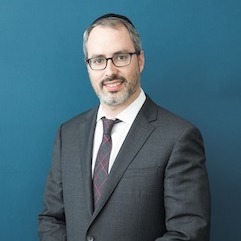Before washing hands one should not touch any food, because he will impart the Ruach Ra’ah to the food. If one touched food, whenever possible (i.e. it won’t ruin the food) the food should be washed three times.
The minimum amount of sleep one has to sleep in order to be obligated to wash is half an hour.
If someone else washes your hands, such as a nurse, they must wash their own hands first (unless they are not Jewish).
Where to wash:
The halacha (based on the Zohar) is that one should not walk four Amos (6-8 feet) without washing their hands in the morning. For this reason, many have the custom to wash their hands before their feet even hit the floor. They do this by placing a cup with a bowl on the floor next to their bed. If you do so there are several things to be careful about:
- Don’t forget it’s there and step in the water
- Make sure the water doesn’t get shoved under the bed. [This goes for all food, the Ruach Ra’ah from sleeping is imparted to what’s under the bed. This is a common camp scenario].
- The water used for washing is considered impure and should not be spilled where it may be stepped on, used to feed an animal or to wash the floor or dishes. If one washed over dishes in the kitchen sink, those dishes should be rinsed off.
- The bowl one washes into should not be used for food according to some.
There is also an opinion (somewhat rejected by the Mishna Berura) that the entire house, or at least the entire room, is considered four Amos. Therefore one may walk to a sink and wash, and this is indeed the custom in many non Chasidic communities.
Modern bathrooms that have the commode in the same room as the sink are a matter of dispute among the poskim. Some poskim say that one is allowed to wash their hands in them, but the blessing should be said outside. Others, including Rav Moshe Feinstein (Igros Moshe EH 1:114) and the Chazon Ish rule that it has the same status as the Talmudic “Bais hakesai” and therefore one should not wash their hands in the bathroom unless there is absolutely no choice.
In the event that the most accessible sink is in the bathroom, whereas it is always best practice to wash as soon as possible one should wash there, and then you may touch your face and so on, and then wash again outside of the bathroom, before making a blessing.
If there is a closed door between the sink area and the lavatory area one may wash and make a blessing.
Although generally one must begin training their children in mitzvos from when they are about 5 years old (see MB 18:123) and capable of understanding, when it comes to netilas yadayim there are those that say that since it is an issue of the metaphysical existence of Ruach Ra’ah, one should wash the hands of the very small as well. (Pri Migadim, quoted by Mishna Berura). Conversely the Shulchan Aruch HaRav (4:2) writes that the Nefesh doesn’t come to a child until he has reached maturity and is obligated in the commandments, therefore there is no Ruach Ra’ah either until that age. [Puzzlingly, in his conclusion he seems to commend washing the hands of newborns]. However the regular chinuch concerns would still apply.
What to wash with
We previously discussed that one should wash each hand three times, alternating hands. This must be done with a human powered action, and should be done with a cup. It is preferable not to use a disposable cup for this, although if that’s all you’ve got its ok. [In this regard we are more lenient than with Kiddush, where a disposable cup should not be used] (Igros Moshe OC 3:39). The cup should be whole, and should contain at least a revi’is (2.9 – 3.3 oz) to begin with.
If one doesn’t have a cup then they may turn on and off the faucet six times. The first spurt of water that comes out of the faucet is considered to be human powered.
If this is not possible one should dip their hands into water six times or at least wipe them with a dry cloth or on a cleansing surface such as wood or earth. This will help for cleanliness for prayer, but not for Ruach Ra’ah.The blessing said in this situation is Al Nekiyus Yadayim. In this case, when one reaches a place with a cup they should wash regularly without a blessing.
The water used for washing should be clear and not bitter.
Next time we will discuss when the blessing is said and other occasions that necessitate hand-washing.


0 Comments